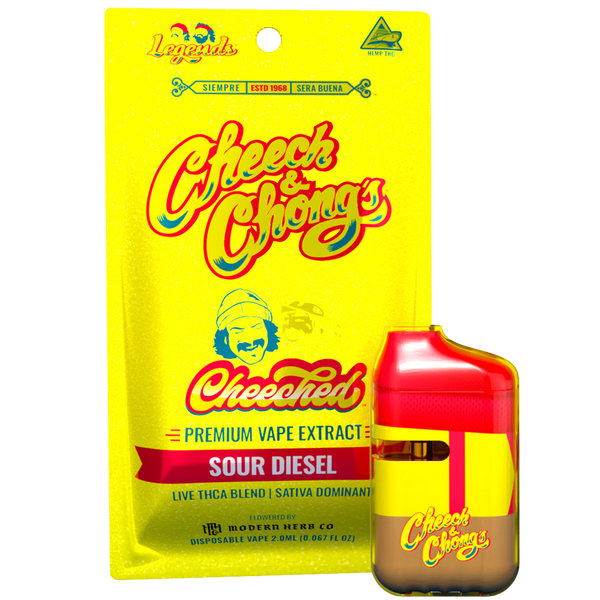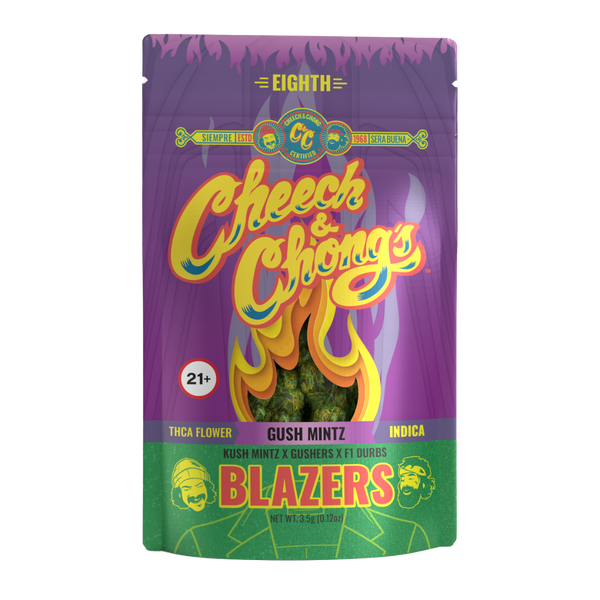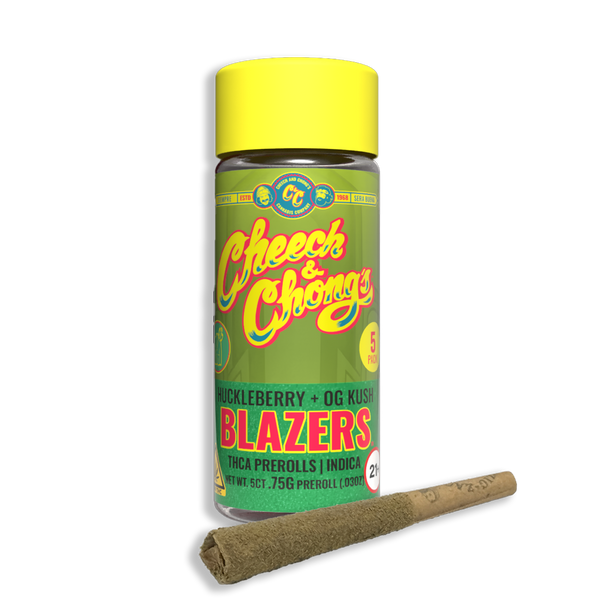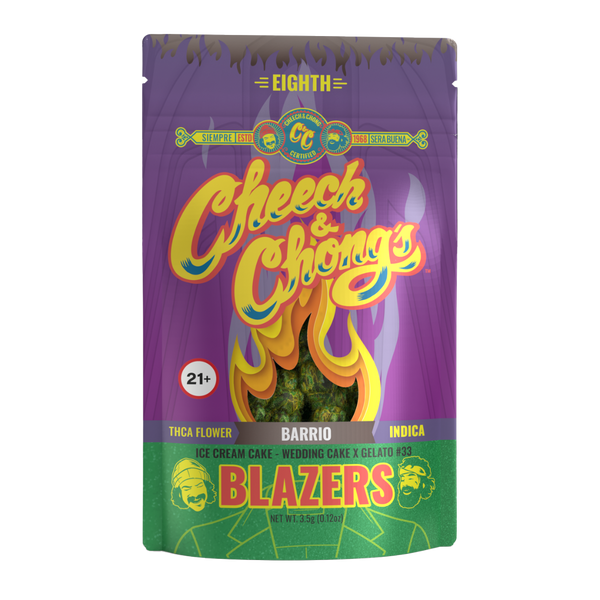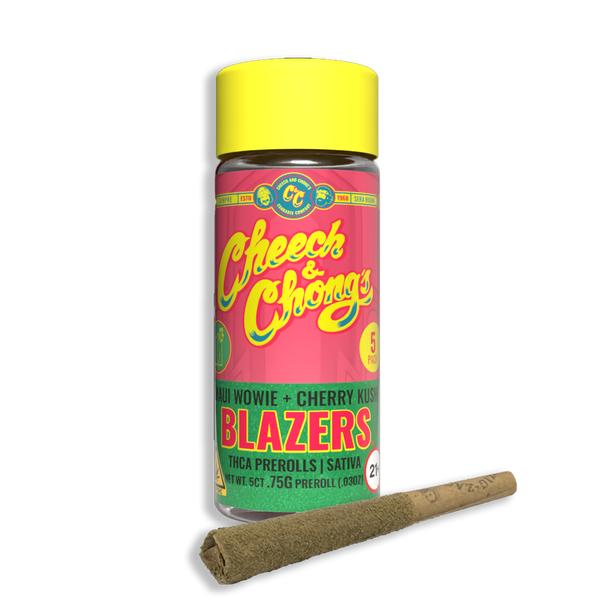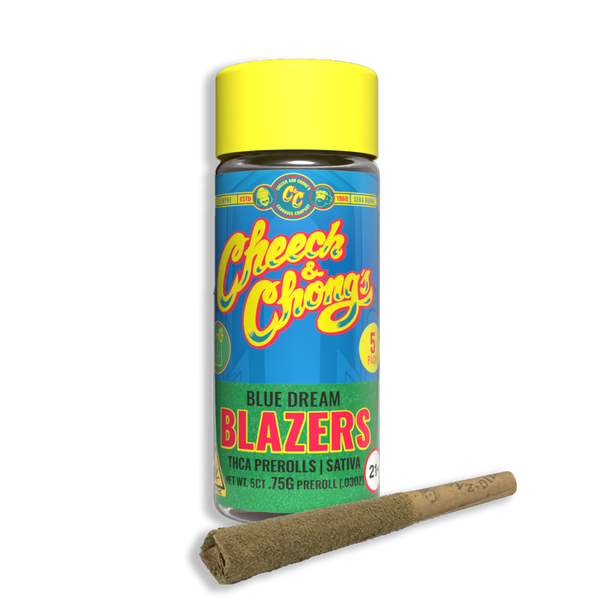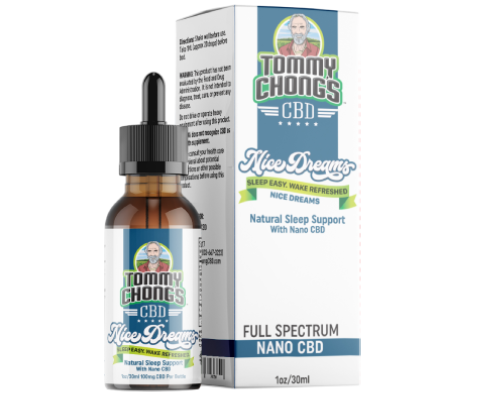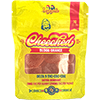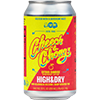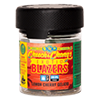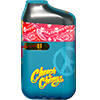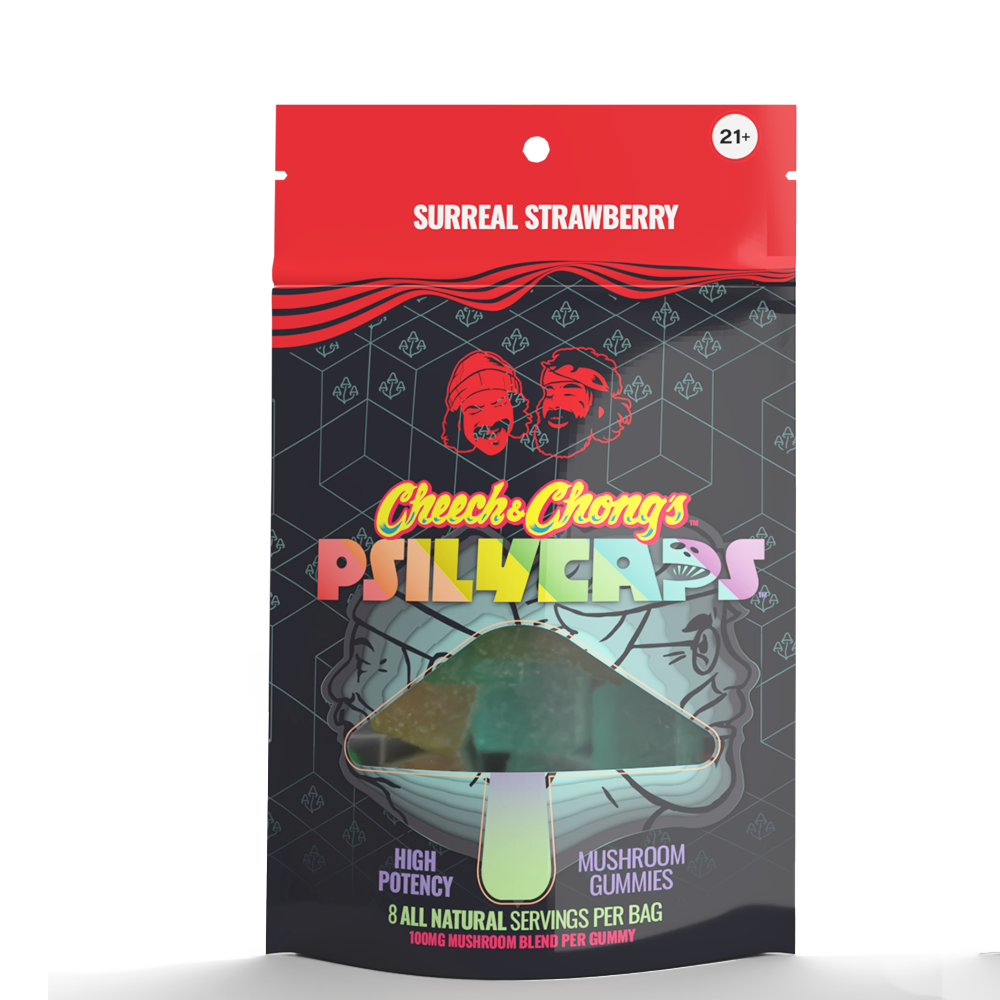Is Delta-9 Legal in Iowa? Yes, If You Stick to the Fine Print

Delta-9 THC (or delta-9 tetrahydrocannabinol) — the same compound that makes weed, well, weed — is legal in Iowa, but only if it tiptoes through the state’s long list of rules. Federally, hemp-derived Delta-9 got the green light back in 2018 with the Farm Bill, as long as it stays at or under 0.3% THC by dry weight. That’s why Delta-9 gummies and other legal hemp products have popped up all over the country.
Iowa was good with the basics of the federal Farm Bill, but layered on extra restrictions at the state level just to make sure nobody got too comfortable. On July 1, 2024, House File 2605 tightened up the rules, setting hard caps on potency, packaging, and what kinds of products are allowed.
In short, Delta-9 edibles in Iowa are only legal if: THC concentration doesn’t exceed 0.3% by dry weight and total THC stays under 4 mg per serving and 10 mg per package. And yes, products have to hit both marks. A gummy might pass the percentage test but still go over 10 mg total THC in the package — which makes it illegal under Iowa law.
Here’s a quick overview of Iowa’s state laws for legal Delta-9 THC products:
-
Hemp-derived Delta-9 ≤ 0.3% by dry weight
-
No more than 4 mg THC per serving and 10 mg per package
-
Must be registered with the state and clearly labeled
-
No vapes, pre-rolls, or inhalables
-
No raw hemp flower for human consumption
-
No Delta-8, Delta-10, THCp, or other synthetic/semi-synthetic cannabinoids
-
No medical claims on packaging or advertising
It takes some digging to find products that fit the bill, but they’re out there. And if you’re in Iowa, knowing the fine print is the only way to shop smart. At Cheech and Chong, we believe good vibes should come with good info — especially in states that make the rules this complicated.

Breaking Down Iowa’s Hemp Laws (So You Don’t Accidentally Break Them)
Iowa might be known for cornfields and caucuses, but when it comes to hemp, it’s all rules and red tape. Delta-9 is technically legal, but the state doesn’t exactly make things easy. Instead of sticking with the basics laid out in the 2018 Farm Bill, Iowa layered on its own rules — and then some.
We’re talking Iowa Code Chapter 204, plus Iowa Administrative Code Chapter 641-156, and a steady stream of updates from the Iowa Department of Health and Human Services.
It’s a lot.
And if your product doesn’t match what Iowa considers legal, it doesn’t matter where it came from or what the label says — it’s not making the cut.
| What’s Legal and What’s Not for Hemp Products in Iowa | |
|---|---|
| ✅ Legal | ❌ Illegal |
| ✅ Hemp-derived Delta-9 THC: Legal if total THC content ≤ 0.3% by dry weight and ≤ 4 mg per serving / 10 mg per package | ❌ Vapes, pre-rolls, or inhalables: Anything meant for smoking or vaping is banned |
| ✅ Edibles and gummies: Allowed if within THC limits, clearly labeled, and registered with Iowa HHS | ❌ Raw hemp flower for human consumption: Can’t be sold or marketed for people, only as a raw commodity |
| ✅ Tinctures: Legal if compliant with THC limits and packaging requirements | ❌ THC-infused alcoholic beverages: Prohibited regardless of hemp source or dosage |
| ✅ Beverages (non-alcoholic): Legal if non-alcoholic and compliant with THC limits | ❌ Synthetic and semi-synthetic cannabinoids: Delta-8 THC, Delta-10 THC, THCp, THC-O, and HHC are all banned |
| ✅ CBD products: Permitted if properly labeled, tested, and registered | ❌ Homemade hemp products: Illegal if made in a home kitchen or residential space |
| ✅ Products registered with Iowa HHS: Required for legal sale in-store or online to Iowa consumers | ❌ Unregistered or unlabeled products: Illegal to sell, distribute, or ship into the state |
| ✅ COA-backed products with compliant labels: Must include lab results, QR codes, and ingredient lists | ❌ Products making medical claims: No language suggesting treatment, prevention, or cure of any medical condition |
The Checklist for a Legal Delta-9 Product in Iowa
Iowa isn’t exactly rolling out the green carpet for hemp products. But there is a legal path for hemp-derived Delta-9 if your product checks every box on Iowa’s list of regulations. It’s not a wide lane, but it’s there.
It Must Be a Food, Beverage, or Supplement
Ingestibles are in. Inhalables are out. But not all edibles make the cut.
Iowa bans Delta-9 in alcoholic drinks, meat or poultry products, dairy, and anything whipped up in your home kitchen (sorry, your cousin’s “special” banana bread doesn’t fly). And if it didn’t come out of a licensed facility with the paperwork to prove it, it’s also not legal.
It Has to Hit the THC and Milligram Bullseye
In Iowa, being “hemp-derived” isn’t enough. Your product also has to pass two separate tests — one based on its 0.3% dry-weight limit, and one based on what they refer to as “total THC.”
THCa is a cannabis compound that naturally turns into THC as soon as it's heated, and Iowa decided they wanted to look at how much THCa is in all hemp products as well. By looking at both THCa and THC levels, they calculate the “total” THC by using the following formula (as laid out in Admin Code 641—156.1(204)): Total THC = Delta-9 THC + (0.877 × THCa)
And even if something looks good on paper, it still has to stay under two hard caps set by House File 2605 (effective July 2024):
-
4 mg of total THC per serving
-
10 mg of total THC per package
A product has to meet both limits — whichever one is stricter.
For example: a gummy that weighs 5 grams could legally hold up to 15 mg of THC under the 0.3% rule. But since Iowa caps each serving at 4 mg, that same gummy would be illegal here.
It doesn’t matter if the product is a tincture, beverage, or edible — if it breaks either limit, it’s not compliant.

It Must Be Registered with the Iowa Department of Health and Human Services
Before a product can be sold in Iowa — in-store or online — it has to be approved by the state. That means getting it registered through Iowa’s consumable hemp program, under Admin Code 641—156.2(204).
The process isn’t complicated, but it is mandatory: brands have to submit lab results, product labels, ingredient lists, and manufacturing details. And yes, that goes for online retailers too — if you’re shipping to Iowa, you need to be registered in Iowa. If it’s not on file with the state, it’s not getting through the door.
It Must Be Labeled Like It’s Being Graded by a Bureaucrat
Iowa doesn’t just want to know what’s in your product — it wants that information printed, posted, and backed by lab results.
Under Admin Code 641—156.4(204), every single package has to include:
-
Total THC per serving and per container
-
A clearly defined serving size
-
Full ingredient list
-
Manufacturer name and contact info
-
A scannable QR code linking to a third-party certificate of analysis (COA)
-
All required legal disclaimers
If the label’s missing anything — even one detail — that product’s not legal in Iowa. Period.
The “Nope” List: What Iowa Doesn’t Allow in Hemp Products
You know what Iowa likes even more than regulating Delta-9? Banning everything around it. If a product doesn’t match the state’s exact idea of “compliant,” it’s not getting through — no matter how legal it is somewhere else.
Let’s start with one of the biggest hard stops:
Inhalable Products (Vapes, Joints, Flower for Smoking)
Anything you can smoke, vape, or light up is off the table. Iowa Code §204.2 bans all hemp products “intended to be introduced into the human body by inhalation.” That covers vape pens, carts, disposables, joints, pre-rolls, wraps — even if they’re derived from hemp plants and test at or under the 0.3% limit.
The state doesn’t care what’s in it if it ends up in your lungs. If it needs a lighter or a battery, it’s not going to fly.
Raw or Dried Hemp Flower for Human Consumption
It might look like harmless bud in a jar, but raw hemp flower is a no-go if you plan on smoking, steeping, or eating it. Iowa law says it can only be sold as a raw agricultural product — not something made for people to consume.
According to Iowa Code §204.14A and HHS guidance, it must carry a disclaimer that says:
“This is a raw or dried agricultural commodity not suitable or intended for human consumption…”
So unless you’re planning to frame it or feed it to a goat, that flower’s not legal for personal use.
Synthetic or Semi-Synthetic Cannabinoids
If the cannabinoid didn’t come straight from the plant, Iowa doesn’t want anything to do with it. That includes Delta-8, Delta-10, THCP, THCO, HHC — and anything else cooked up in a lab instead of grown in a field.
Per Admin Code 641—156.3(204), synthetics and semi-synthetics are banned, no matter how trendy they are elsewhere.
Homemade Food Items
Got a killer hemp cookie recipe? You’re probably going to want to keep it in the family. Iowa bans all consumable hemp products made in home kitchens — no matter how delicious it looks.
Products with Medical Claims
If your product even hints at treating pain, anxiety, or anything else on a WebMD list, it’s already in the danger zone. Iowa law doesn’t allow any marketing that suggests a product can diagnose, treat, or prevent disease — or mess with how the body functions.
That rule comes from Admin Code 641—156.4(204), and the state takes it seriously.
So if the label reads like a prescription, don’t expect it to pass inspection.
The Bottom Line: Precision or Bust
If you’re trying to stay on the right side of Iowa law, here’s what your Delta-9 product has to be:
-
Hemp-derived, with total THC at or below 0.3%
Related Products
$39.99$29.99$39.99$29.99 -
Ingestible only — no vapes, joints, or smokables
-
Low-dose (4 mg or less per serving, 10 mg or less per package)
-
Completely free of synthetic or semi-synthetic cannabinoids
-
Registered with the Iowa Department of Health and Human Services
-
Fully labeled with lab results, disclaimers, and nothing that sounds like a medical claim
But hey — at least when Iowa draws the line, you can actually see where it is.
Marijuana in Iowa: What You Can and (Mostly) Can’t Do
Hemp-derived products might have a path in Iowa — but marijuana is a completely different story. Once the THC percentage exceeds 0.3% by dry weight, the state treats it like a controlled substance, and the rules shift fast. So whether you’re thinking about lighting up or wondering what counts as “medical,” it’s worth knowing exactly where that line is drawn.
Recreational Marijuana: Zero Access, Zero Exceptions
Iowa doesn’t do recreational cannabis. It’s still classified as a Schedule I controlled substance, and there are no dispensaries, no adult-use market, and definitely no wiggle room.
Possession, sale, or use of marijuana — even a little — can bring real legal trouble. That includes any product with more than 0.3% THC by dry weight, no matter how it’s packaged or labeled.
Medical Marijuana: Allowed by Law, Restricted by Design
Iowa does have a medical cannabis program — but don’t expect anything close to what you’ll find in more relaxed states. The Iowa Medical Cannabidiol Program is tightly controlled, low on options, and totally flower-free.
Here’s what you can expect if you’re looking for medical marijuana:
-
Patients can legally purchase up to 4.5 grams of THC every 90 days.
-
Only five licensed dispensaries (a.k.a. “dispensing facilities”) exist in the entire state.
-
Allowed formats include tinctures, capsules, topicals, and low-dose edibles — but nothing smokable.
-
Qualifying conditions include chronic pain, PTSD, cancer, seizures, and a few others.
-
You’ll need certification from an Iowa healthcare provider and registration with the state.
So yes, it’s technically legal. But if you’re expecting jars, menus, and variety — you’re in the wrong state.
Possession in Iowa Still Gets the Full Legal Treatment
Delta-9 might be legal in microdoses — but cross the line on potency, quantity, or source, and it’s treated as marijuana under Iowa law. And Iowa has some pretty steep consequences if you’re busted.
Here’s what you’re looking at if you’re caught with illegal THC:
-
First offense: Misdemeanor — up to 6 months in jail and a $1,000 fine
-
Second offense: Still a misdemeanor — up to 1 year in jail and a $2,560 fine
-
Third offense: Misdemeanor again — but this time, up to 2 years in jail and an $8,540 fine
There’s no weight threshold, either — even a single gummy over the limit can count.
So yeah… definitely not worth the gamble.
The Lookalike Problem
Fun fact: Legal Delta-9 edibles and illegal marijuana edibles usually look exactly the same…Which means that to Iowa law enforcement, a gummy is a gummy — unless you’ve got receipts and packaging showing what you have is actually legal. The burden’s on you to prove it’s legal, not on them to assume it is.
Here’s how to keep yourself covered:
-
Only buy products that meet Iowa’s rules: hemp-derived, within THC limits, and absolutely no inhalables.
-
Keep everything in the original packaging, with a QR code or batch number linked to lab results.
-
Save your receipts — especially for online orders.
-
Never carry loose edibles or unlabeled products. If you can’t prove what it is, don’t bring it.
Iowa draws a hard legal line between hemp and marijuana — but good luck explaining that during a traffic stop…no one wants to explain a legal gummy to a very skeptical cop.
The No-Oops Guide to Buying Delta-9 in Iowa
Now that you know how not to get busted, let’s talk about how to actually shop. Buying Delta-9 in Iowa isn’t impossible — you just need to know what to look for, what to avoid, and what makes a product state-approved.
1. Hemp-Derived or Bust
If it’s not from hemp, it’s not legal — full stop. Only Delta-9 sourced from federally legal hemp (with no more than 0.3% THC by dry weight) makes the cut. Anything else is marijuana in the eyes of Iowa law, and you won’t find a dispensary here to back it up.
Always look for “hemp-derived” front and center on the label — and double-check the lab results just to be safe.
2. Size Matters (Serving Size, That Is)
While other states play it loose with potency, Iowa put a governor on your gummies. To stay legal, each serving has to clock in at 4 mg of total THC or less, and the whole package can’t go over 10 mg. That means forget the big-dose edibles and look for low-milligram options made for microdosing. In Iowa, small bites are the only ones that won’t bite back.
3. Do the Math, Stay Outta Trouble
Iowa’s 4 mg limit isn’t just for Delta-9 — it counts total THC. That means the number on the label should include both Delta-9 and THCa using the state’s official formula:
Total THC = Delta-9 + (0.877 × THCa)
If a product leaves out THCa or tries to fudge the math, it’s not compliant — and it’s a risk. And “close enough” definitely won’t work in court.
4. No Hits, No Puffs, No Exceptions
If you can smoke it, puff it, or vape it — Iowa says pass. (get it? 😜)
Even if it’s hemp-derived and under the legal THC limit, inhalable products are banned across the board. That means no carts, no pens, no joints, and no flower. If it needs a lighter or a battery, leave it out of your cart.
5. If It’s Cooked Up in a Lab, It’s Off the Table
Iowa draws a hard line between plant-made and lab-made. Synthetic and semi-synthetic cannabinoids — like Delta-8, Delta-10, THCp, THCo, and HHC — are all banned, no matter how “hemp-adjacent” they claim to be.
If it didn’t come straight from the plant in its natural form, it’s not welcome on Iowa shelves.
6. No Clear Label? That’s a Clear Problem
If the label’s vague, Iowa’s answer is no. A compliant product should spell everything out.
Look for this on every package:
-
Total THC per serving and per container
-
Serving size and ingredient list
-
Manufacturer name and contact info
-
QR code linking to third-party lab results (COA)
-
Legally required disclaimers (not for kids, not FDA approved, not medicine)
If a product skips any of that, it wasn’t made with Iowa in mind — and it’s not worth the risk.
7. Shop from Brands That Play by Iowa’s Rules
Most national brands aren’t formulating products with Iowa in mind — and it shows. They might be compliant in Colorado or California, but their THC levels, cannabinoid blends, or labeling often miss Iowa’s very specific marks.
That’s why it pays to buy from brands that actually read the Iowa rulebook, register their products with the state, and keep things above board. Look for clear labels, test results, and packaging that doesn’t make you guess — because in Iowa, “probably legal” doesn’t cut it.
Delta-9 Is Legal As Long As You Color Inside the Lines
Iowa didn’t exactly make this easy. Delta-9 is legal here, but only if it’s the right kind, in the right dose, sold the right way, with the right label, by the right people.
If your product is hemp-derived, low-dose, in a gummy or drink, and free from synthetics, you’re probably good to go — but guessing isn’t a great legal strategy.
Especially when shopping online or from out-of-state brands, it’s way too easy to buy something that doesn’t pass Iowa’s test. So what’s a responsible stoner to do? Read the label. Ask for the COA. And when in doubt, don’t risk it. There’s nothing fun about accidentally breaking the law over a gummy.
At Cheech and Chong, we’re not just here to get you buzzed — we’re here to keep you in the know. We believe safe, legal access to high-quality hemp-derived THC shouldn’t be this complicated, but until the laws change, we’ll help you navigate the fine print.


